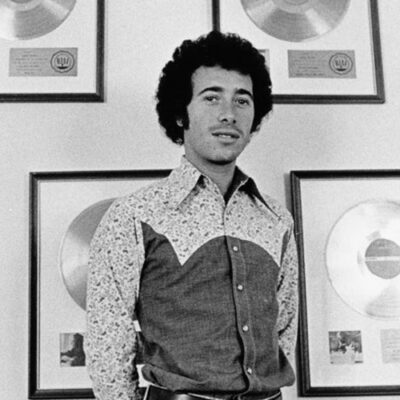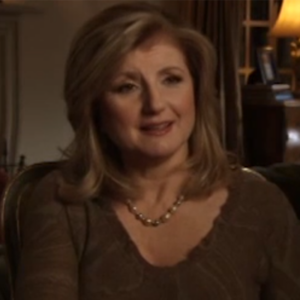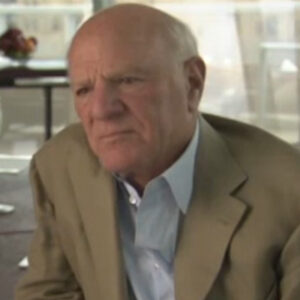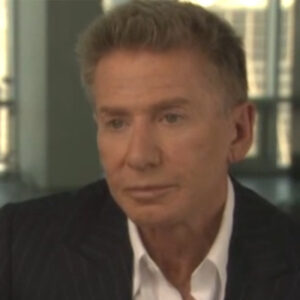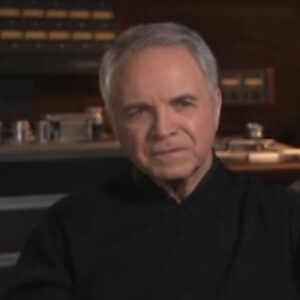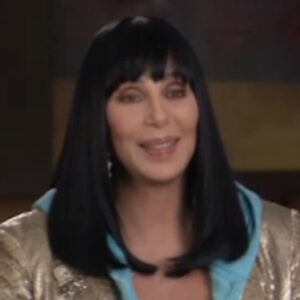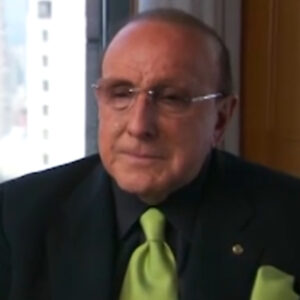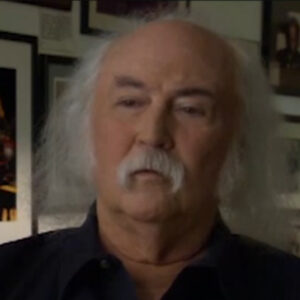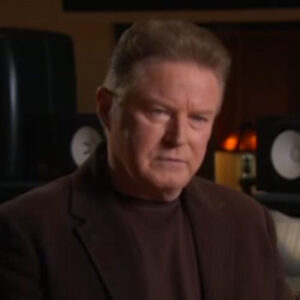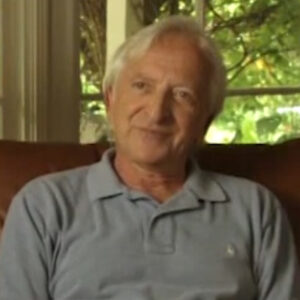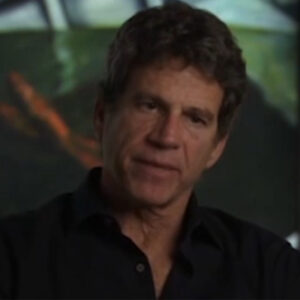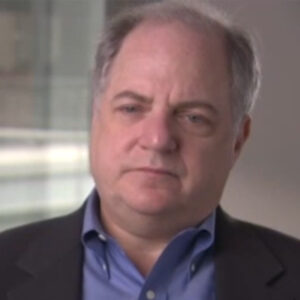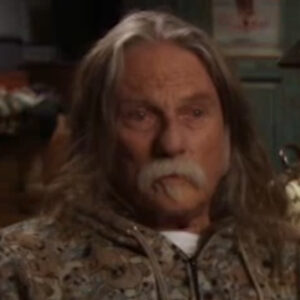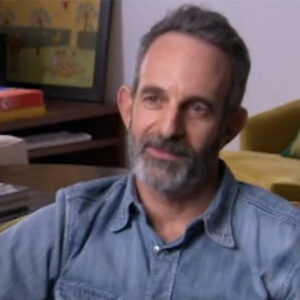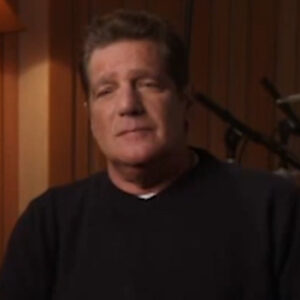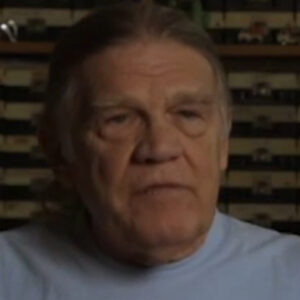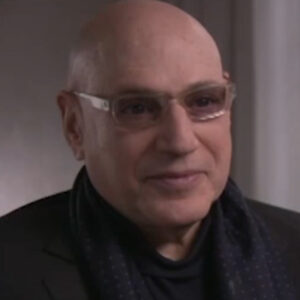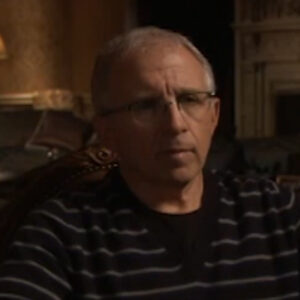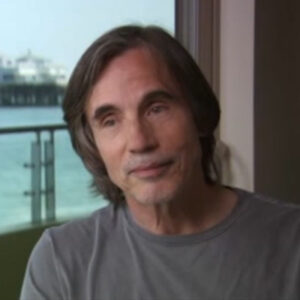Speaker So did you know that it was a really a triumph? I mean, every. Everywhere they gather, gathered, it was a once in a lifetime, it was the concert of a lifetime, and you just never get to see all those people. That’s that that was never to be seen again. And then the level of performance is extraordinarily high. I mean, people really were putting out their best stuff and exceptional performances. And that was because that spirit, the love, the camaraderie of the collaborations was so exquisite. You know, the choice of the collaboration. People really want to do this and do a great well and cameos at every level. I’ve been having a hard time with it, but I’ve been in the last two weeks editing the show and it’s just fantastic to work with Gary. He not on the editing. Oh, no, no, no. I hear he’s a good editor, too. Yeah, yeah. I’ll like no, no, no. Joel Gallant’s doing the editing there and so they shipped me the edits then I guess it’s no, I mean I’m actually sitting doing editing, but they’re doing it today at my direction, the style I want in the way I’ve predetermined and it’s looking great for me. Great. It’s like trying to make it. Robbie is helping me as an enormous influence on us. And my the person with me overseeing the editing is Cameron was kind of great. So I’m trying to do this more as a film to the extent you can with him, what we’ve got and what the material is, rather than a Rock’em Sock’Em Live TV concert, you know. So stuff is really good backstage stuff. No, no, no, not on HBO. We’re shooting that for some B roll stuff. That’s not nothing good because we didn’t touch it.
Speaker Anytime you say it would probably get us of touch with David Geffen comes backstage shooting for us.
Speaker But I don’t think he’s ever said I never saw him except in the run up beforehand. So he would have to, you know, not Davidek go. Yeah, well, it’s 20 minutes before him. I said I’d love to have you come hour. Next next day. I said I saw David backstage. They’re having a time of his life. David came late the first night, which was typical. First, I was surprised. Even came in.
Speaker David, do you have I’ve seen a rerolling David, a rock concert really in years and years and years and years. And these professors, he is like the music. He says, I read that quote somewhere and but this was all the people, not all. But these are the people who grew up with these were the musicians, the music of his youth and his career and the people he helped put on the map and the people who helped put him on the map.
Speaker To a great extent, that was it was that era. And so when I heard Dave was coming the first, I was rather surprised and in fact, surprised he was showing up. I knew the people he was coming with were not he was not going to stand them up. And you just seen Dave in New York in and of itself, forget that it’s a rock ‘n’ roll shows. Also unusual. David doesn’t really go out of L.A. very much to accept the boat and.
Speaker The is interesting that David was there most often was there Jerry Moss and Joe Friesen was there Americans when I was there, and it was a kind of a gathering of the people who I met at the beginning of my term in the record business, of the old people who the older people, the elder statesmen who run the record business really anymore.
Speaker And it’s kind of the tone in a way of, you know, was an adult evening. I was I mean, if you average the age of the performers there, even including the U2, I’m sure you come up to the mid 50s as the average age. We didn’t have Justin Timberlake. I was a bit anyway. So David was so clearly enjoying himself and and then seeing back say you got this like the old days. And he wanted Jimmy. I mean, I haven’t seen these people in so long. This is just that whole reunion spirit was there. And it put me in mind of something I told David earlier that that concert was 30 years, almost a week of the Muse concert in that same place with Bruce Springsteen and Jackson and Crosby, Stills Nash and bond rating James, who are opening essentially our opening closing act. And I remember going being at those shows with David at the Garden, you know, and standing to the side of the stage during soundcheck singing show with Dave Davies and just David looking at Jackson with love in his eyes, you know, it’s just I mean, and Jackson was so beautiful looking that, you know, so great looking back. And they were just just mesmerized. And that was our principal memory of those music concerts.
Speaker Is that how did you get your perspective?
Speaker I, I can remember where and all that. Why? I think probably David called me up in San Francisco. Must have been 68 maybe. And he must have comment because I don’t think I knew who he was really. We get pretty insular in San Francisco and I don’t know who David was working with then. I’m not sure. But he was a manager. Maybe then and all of a sudden I’m with David and we’re down at Children’s Hospital on California Street in San Francisco. In Neil Young’s room and Neil Young’s in a hospital for some back surgery, a back operation. And so I know David left for two or three hours sitting around with his first wife. I think was also Peggy was her first name. And and I remember that. Why am I sitting here with Neil Young in the hospital? You know, because I’m with David, you know, and that that is what my first memory of David is.
Speaker Why do you.
Speaker I don’t know, I mean, because I guess it was a small. Industry then, you know, in some ways year old or so and, you know, had some credibility here covering the acts that he was representing a man this small, you know, let’s meet the guy who runs this thing. And so I think that I was interested in meeting people, too, like that. And we were both kind of young and on our way and probably similar ambitions and stuff. And I was pretty cute until it was still.
Speaker What were your first impressions? I’m.
Speaker Just to energy, hyperkinetic energy of David, you know, just go, go, go, go, go, go.
Speaker Did you have a sense that he was going to become one of these bubbles?
Speaker Oh, no, no, no, no. I didn’t. I didn’t. I don’t know. I didn’t. I mean, maybe some people can have that presence or an older person would have seen it. I didn’t see it because I was Davis contemporary, something like Ahmet Kasinga. Oh, my God. I mean, I just I have the perspective to see what happens to a young man like that and how it can change. But a person like Mo or Ahmed or any of my God, this one, the most energetic young man I’ve run into and so long, he’s just brilliant the way he operates, the stuff he says, you know, that that that motivation and energy. And and so an older person, that’s Khorramshahr. And so that whole mentoring thing.
Speaker Do you think in the music business?
Speaker Because I think that that’s very, very important. Maybe. It’s more so in that business than any other structure in America, if you have another structure, American business, you know, said automobile company, I mean, there are schools that teach management and there’s it’s a big industry, lots of different ways into it and come out the process. But the music business has a very particular individualized small business. And even certainly then that where you got the experience for it and the knowledge about it is hard to come by. So when you find somebody who can show you the ropes or explain or just that, you can be around, it’s extremely important, you know. And you know, and David had, you know, those marvelous people, to my knowledge, to be around and people just gravitated to him. I mean, you know, everybody loved that energy and enthusiasm in that, you know, go get him spirit. And then the drive and ambition was, you know, Dave is a magnetic person to be around. I think for older people. I mean, I’m not sure all these people you see and Dave is that was me as a young man. And to some extent that reflects that drive and that desire. I had that love of this.
Speaker Did you ever see concerns you political?
Speaker You kind of do great compatibility with them. Thank you. Any time.
Speaker Did you ever see. Oh, plenty of times. But I mean, that was traces my own rise. I mean, separately, I was very great friends with Ahmet and and also with David. And and so I would see them in many circumstances, in many places. And it was always a struggle. Give us something to. Well, David worshipped on it and so did I. But David was in business with Ahmet too, and.
Speaker I know that was a very unusual and special person to be around and.
Speaker And you just really want to be around him a lot and you know, David. You know, I always got two or three things games going through, three things going on, I’m actually one of them was I want to learn everything I can from this guy.
Speaker On top of that, I don’t know how to have fun like nobody else. And I’m like running buddies and company and and, you know, you know, wicked armitt and.
Speaker So, you know, but it also had its, you know, its. You know, you know their own business that difficult. They had a lot of difficult moments. I mean, David’s very was very stubborn and tough and and. Had to have his way, you know, about stuff and, you know, it was likewise. And Burgmann held the cards, you know, they would be joined by his artists under contract to him, he was the senior individual in the room and the relationship, and he had all the respect and credibility and all these things. And at a point, you know, there was a father son. You know, locking of of heads and, you know, which was kind of, I guess, kind of inevitable, you know, and but those were just there’s most of magic days. I mean. Yeah, so much fun. You know, David being crazy, I’m not being crazy, I was a little crazy. They’re great. And he has all these wonderful pictures. I don’t know if you run across them or not, of David Armitt together with the Beverly Hills Hotel. And you see the picture Amy has of David standing outside one of the bungalows in the garden with a big leaf over himself.
Speaker And that I haven’t seen the pictures that I just made. I’ve looked at about it and I haven’t seen those yet at the live picture, but I’m sure they must be there.
Speaker The leaf is one that’s been around, but and he was always snapping around those days. And so there are pictures of the two of them. I guess, you know, because of my age, I’m going to be imagining it, too. And it was good. You know, I you know, I had the opportunity to see them fight to, you know, which is always a difficult thing.
Speaker And I said this isn’t this isn’t about one time. And obviously there were ups and downs in that relationship.
Speaker And well, I’m also well, I guess he’d like to torture David Little, you know, and, you know, he knew where the buttons were on David. And, you know, I would do so. And then David Rice wouldn’t explode.
Speaker What were the buttons? Oh, I can’t control.
Speaker Imette was a very elegant guy who was, in fact, from a very distinguished upper upper class background in Turkey and swabs and David, quite the opposite from the lower class Brooklyn right thing. And so I think that and so Gadamer could pull these moves on on David about how suave and sophisticated and wealthy he was and and. Yeah, and tell me what you know, low and character, he was, you know, some just taking the knife and then they David swallow, not harangue. Sometimes they would explode.
Speaker But it seems also like the board took him under his wing. I mean, he’s the one. Absolutely.
Speaker But he lived under his wing. I mean, I’m it was this was a father to him.
Speaker Why the state in this is going on?
Speaker Let me ask you this question. Do you to. For days, memories of the stage are not the most positive things, you have no idea what.
Speaker I know that that’s the case. Uh.
Speaker I mean, other than that, they fought this in disputes, they fell out. David came and gave a very nice eulogy for Ahmed and.
Speaker You did, too. Thank you.
Speaker No, I don’t know why they would harbor, you know, I mean, I, I think I don’t know, but there’s the factual basis and just psychological and that could just be this change of position to match with.
Speaker Yeah, I could be just David.
Speaker It’s a it’s a tough one to make because they did go through so many ups and downs and they were snubs and it was to get it out the day. And then at the end of the day, because he didn’t he didn’t partner. He started to get so much more. And I think that’s a huge blow.
Speaker Why didn’t he do with it? Because I wouldn’t give him the money. It’s in there somewhere and it’s a matter of record somewhere. So then maybe that maybe I just got furious about it and never forgave him and created the bitterness. I mean.
Speaker Journalists read their first seeing each other after David. I went to get my kids out there right at the start of the first time and party at your house.
Speaker When was that?
Speaker After that thing. And all of a sudden. David, why did you come here? Mm hmm. Exactly.
Speaker Well, I think Olmert must have been really, really angry. That must have hurt him very, very badly because, I mean, he had put all this time into it. Again, that said, you know, again, Olmert had three agendas going to one of was I’m going to make this guy smart as talent spotted and I’m going to have that deal that’s going to be mine. And I put five years of flying debris around the world in my junk Gulfstream two and I put him up. I have interest in arms and he doesn’t keep coming. Well, I mean, sure, I’m also looked at that as some horrible betrayal.
Speaker And and to extend it was it was a betrayal. And but that was David in those days, you know. And you know, David, I know it’s changed, but, you know, it was so Buzz saw in his approach to stuff and that, you know, that famous quote, you say, you know what business you said people who says I’m business.
Speaker I mean, I’m in the David Geffen business and nothing counted outside of that, you know, whoever it was. So I’m sure it’s there, you know? I mean.
Speaker I guess according to it, he according to the story, I mean, he I mean, to not have explained that to him or not have done any of that thing, I just, you know, and it is probably something I’ll never recover from. And therefore, maybe David feels guilty. I mean, I’m just saying maybe David felt so guilty about this after he never wanted to confront that situation again, you know, just lets you know it was a huge mistake, but didn’t know how to integrate it into his spare change.
Speaker It’s very stupid and sometimes the wrong people and we avoid them. I know it’s horrible for this kind of stuff especially.
Speaker Well, it’s a little distracting. There’s if there’s things in our life that we’ve done that we don’t like, are most of us run away from and avoid it and try and let the memory do its work of trick memory stuff and lose that and, you know, and others accept it and make amends and repair it and all that stuff. And and, you know, sometimes just something has been so wrong, you can’t fix it and you have to leave. It’s like a divorce. It’s just over.
Speaker We did a mixture of both. Think that I think he’s made an effort to repair a lot of relationships. Uh.
Speaker Like the movie about how his cancer scare. Mm hmm. And you realize that you want to live his life. Mm hmm. And want to be a different person. Well, it’s soul searching. Mm hmm. I feel I think he thinks he’s made reparations.
Speaker I think he I think he has tried, you know, and I think he’s trying to be a much better person than a you know, a gentler person. And it’s up to David. Still, David, I mean, it’s the fundament David is there. But he is he is he is really aware of that.
Speaker He at that he doesn’t want to hurt anymore people that while he would be merciless in dealing with some over or trying to stammer something, that he’s not on the lookout for that anymore and he’s not want to get into those kinds of situations. I mean, he he was a rough and rough and tumble player, you know, and his his years in the music business. And and there were some you know, there’s some, uh.
Speaker Points where he did things he probably wouldn’t do again today, thanks to Neil Young. It’s just a lot of, you know, crazy stuff, like because they were so hot headed and so. You can’t possibly do this to me. Why?
Speaker Because it’s me, you know, it’s like and he just didn’t understand that I mean, I have had my feud with David was, you know, a small and and not that Mevo, but I mean, it was intense, you know, because I did something that David didn’t want to have done that was so, so silly in the scale of things. But it was just he had given an interview to Rolling Stone and he wanted to take some stuff back between the time he had given the interview and time we were ready to publish it. A month or so later, he had taken on the assignment from the record business to be in charge of anti bootlegging crusade this years ago. And he had an interview with our reporter. We were doing this to bootleg is not a problem copying whatever. He just this is just we know he means nothing. So also now he’s in charge of the RIAA bootlegging committee, and so he has to announce it. But we had this quote, so we ran, you know, he said but I said, David, I can’t you know, as a matter of journalistic principle. Now, take this back. You spoke to the reporter on the record. I can’t I can’t do that. I mean, I. I know how you feel in your point of view is that we’re friends and I should be able to do that for you. But I have to you have to understand that I’m running what is in a certain sense a public trust here in this journalistic institution. And that’s why I can’t do I think it’s not. Yeah. So slightly embarrassing to him, you know, to anyway. But but that caused, you know, two or three years of, you know, I’m not speaking, but you’re absolutely right.
Speaker Let’s just go back because I’m kind of way. But did you know David when he was managing money? You know, so you. No.
Speaker Have you heard anything about just what I’ve read? That’s all. I don’t know. I know nothing about it.
Speaker I’ve known somebody with moderation, supposedly, but I was there.
Speaker Absolutely. Yes. No one knew about it. And I guess I do care about this big Rowbotham I that and courses are girls or it was like a it just out of the spirit of the occasion. It’s just weird.
Speaker We got people talking. They did not like.
Speaker I know David. I know Elliott is a professional associate, the nice person. We’ve been friendly for years.
Speaker What kind of reputation you saw back in that time I guess was bad for that. And you.
Speaker Were you aware of getting, well, its management and their reputation, you know, so you really come in later with so.
Speaker What’s interesting is that it seems made for a lot of parallels, interesting parallels between.
Speaker In the sense that we both kind of in the infancy of this enormous change in the music business, this whole huge sort of singer songwriter movement that was moving, you know, the music business away from the Brill Building to singer songwriters who were pouring out their heart and music was becoming a business, uh, big business for a lot of young people.
Speaker And you are the writer for that date and. Can you talk a little bit about what that was, what that shift was, how that affected the business, impacted managers and how it affected the way people were running the show?
Speaker Well. I mean.
Speaker About the time that Dave and I both came into the music business in the middle 60s. Yeah, the first couple of waves of it had already gone through the early, the Elvis, all that stuff, and then this next wave, the Beatles and, you know, Phil Spector and Brian Wilson and those. So when we emerge onstage, it was now becoming a really transformational cultural force in a much larger sense. And it was as from the beginning. It’s Audie and now its audience was reaching its tiny reaches maturity, I mean, it was no longer teenage girls and boys. Now the audience for this sort of this form was now starting. You’re going to start to go to college and high school and start to emerge as. The most, the biggest. Wealthiest, best educated generation in history of America, and along with it was came this music and so. And right alongside of all the technological change that allowed it to grow, along with the increasing size of the audience, the potency of the art form was the fact that it became more and more widespread than ever as it went from, you know, 40, a Long-playing, 78. Long-playing works to this and all of a sudden it was on tape and then was a Walkman, you know, and it’s just gone off now to leading up until today, the Internet was absolutely universal. But anyway, what’s the point? So it just. It just grew and grew, and so you had these two kind of. Kind of competing for survival time, the kind of ethos that it came out of. That it was generational care, a lot of content, meaning and was central to people’s emotional and spiritual lives and political lives. So there there are cultural and stylistic lives.
Speaker And on the other hand, that the cash. The money.
Speaker We’re starting to pile up for young people on generation, people are the type of individuals they’re generally sort of had been outside the system, David or myself, by dint of age or by dint of what we like to do or other people in the back of business who because they love me a little on the fringes, Heidi, where their MO or Joe or, you know, on and. The rewards were substantial. And I guess you sort of add another thing, the lifestyle that came with it was substantial, fun, decadent to some extent enchanting, certainly as. Kind of a wonderful lifestyle for a young you know, for the year ever seen, there was freedom in it, you know, unlike most other business. So all those things sort of mixed together and created the tensions of the side of the drama and. And, you know, we all that’s what we grew up in, you know, and it was but it was different mixes to different people. I mean, David, obviously money was a more power. It was a very powerful motivator for David, much less so for me. My my motivation, I think it was was the ethos of it, you know, and but it led to all this money. And right in the middle, we could meet in a decadent lifestyle, but not that kind of lifestyle, but in the in the freedom of it. And that was intoxicating and powerful, and then it was his elsewhere is kind of shared purpose, and we’d frayed around the edges a little sometimes with different things. But I know all in all, we are part of this wonderful movement and point in history and the movement part of a movement in history that that drove us all along and made us all friends for life. I mean, I consider David a friend of mine and, you know, it’s deep and it’s rich and but I’m not asking a question maybe.
Speaker But if you go there, you did a beautiful job. It was wonderful. I can see this all together, but that is factor. So what role was this foul play?
Speaker Why were they? What is it that was unique about David? Eliot Spitzer was unique about that company. What role did it play for you?
Speaker Well, I mean, the name kind of gives you the clue to what was so enchanting about it and what made it work for people saying here we, you know, we’re going to be different than anybody else. We’re going to be a home for artists asylum and crazy people will take care of. You are a place of rest shelter. You know, we. We’ll grant you relief in the sense of the sound, you have a home here, you can seek asylum on our shores as well as a double entendre. And, you know, did the artists that they loved, you know, who are all in business, David and Elliot, and they loved them and trusted them. And and they were they were more on the street with the artists and more of the arts agent than you would find it at Columbia Records then our Warners or which is a very artist friendly company. I mean, they were hip, you know, in a way that nobody else was. They were so kind of locked in with a certain group of people. I mean, he just he wanted to be with them. They were the the coolest operation town with the smartest, best artists and this young charging, hard charging young executive. And they’re, you know, very casual clothes and stuff like that. And, um, they were friends. Yeah, they were your friends. They were the same age, you know, and that was good. Pretty late. Some people got a little, you know, expected maybe too much out of them that they weren’t also businessmen, you know, and they did a great job. I mean, let’s let’s face it, they were great to talk to me at the end of it by the end of the meeting.
Speaker And Crosby, Stills and Nash were planning for five days with.
Speaker Well, yeah, Jerry was another hothead, you know, and was not about the broke this kind of influence from. This junior agent about that and I can see him do it. Jerry’s very old fashioned. He didn’t have any of the he didn’t like this music. Anyway, images are being pressed. Not really. You know, the contemporary presidential was and I just found it. I discovered some stuff laying around, got this country’s most of mine going like a telegram from Jerry. You know, about this interview.
Speaker I’d done much like issue six, but yeah. I mean, yeah, David knew how to how to make that.
Speaker I mean, that was that especially that was an agent put together the send button and it was brilliant.
Speaker You got to say you have been able to do that and you know, not very. Yeah, right. Was that the first one of those?
Speaker I mean, it was a supergroup thing with Al Cooper and a couple of people crossing labels. But this whole idea of cross names was, uh, David, I guess CNN was the first one that. Really. Yeah.
Speaker And then they became. Yeah. Yeah. Did you spend a lot of time with David Jackson or was that concert the the news concert?
Speaker It was the first time that you saw David Jackson together.
Speaker Um, I don’t know if that’s the case or not. Maybe. Maybe not. I don’t know. I know Jackson well before that, but it’s just the very beginning of Jackson’s life. A record career like 18 or 19.
Speaker Eminem, did he ever talk to David or talk to you about why he was so I mean, than the fact that he was cute? What drew him to Jackson? Music Never talk to you about the music.
Speaker That’s what he loved, the music.
Speaker I don’t recall ever having talked to him about the music and what it did for him. Emotions versus not after conversation. You have people.
Speaker He got it. He understood it. He knew what was good and bad.
Speaker And he put together I mean, you know, he knew it and appreciated, like, as far as I could see, you know, otherwise he wouldn’t be around. And also he couldn’t have done it that well, you know, unless he had a love of it. And then when he said, I don’t like him, I thought, that’s what he’s just saying, you know, for a fact, you know, and I’m sure he’s got, like, all this other stuff and doesn’t listen to too much.
Speaker But as soon as you stop listening to the new stuff, you listen to what you grew up with, what you love about song, which is the thing that I think, well, you know, that’s a reasonable thing to do, too.
Speaker I mean, but I’m sure he loved Jackson’s music, you know, and knew it and and moved him. And I’m sure it’s only two and more. I mean, but look, the people he was with were the the best they were wrote the most some of the most emotional and personal stuff, some of the most beautiful songs. And and clearly David was and some of the that heard it and it moved him and and hurt him and and he gave us all to it.
Speaker I think it did with him. I think he was very emotional about the music. I think the fact that he made so much money and overshadowed that at least I don’t think that.
Speaker Oh, I think, you know, they both have very powerful elements.
Speaker And David, you know, I mean, Warren Beatty described him when he I don’t know if you were there.
Speaker Smoke was the take all of these projects and going, David, I’m a gay man. Yeah.
Speaker Were you there? No, Warren introduced me. He said two things that you described him as a captain of industry, that the soul of an artist.
Speaker And how would you is there could you expand on that or want to get me to add to that?
Speaker Well, I mean, it’s a wonderful description.
Speaker It’s reductive, like all those kind of slogans are what I would think I would start to speak of David as an intuitive genius first because he’s a captive industry. I don’t think he has the soul of an artist. I think he loves the soul of the artist and he understands the soul of artist and which is just as important.
Speaker I mean, artists are driven by all kinds of other things. But so.
Speaker High got an intuitive sense that business. And he understood the art form, small, soulful way and passionate way, he understood that.
Speaker That’s great. That’s terrific. And.
Speaker And captive measures like somebody goes to work and sees smokestacks out there. So the cabinet is an organized kind of person who runs the organized, but Cartilages don’t come in at that hours dressed like that.
Speaker But God bless one for you. Do you think he just was himself doing that and cultivating a certain image when when he says, you know, these are the David Geffen businesses?
Speaker That’s an astute observation.
Speaker He he’s in the business of managing his own incredible skills and abilities, that bundle of energy and knowledge, the soul that that that built all this stuff and assembled all this stuff.
Speaker I think it’s a pretty transparent guy. Yeah. And I suspect early in his life, he was also a guy in a certain way. And he was also had a certain innocence about the press. And that ended up putting quite a few times, didn’t it?
Speaker I’m not sure you’re innocent about the press. It’s just.
Speaker I mean, where was he ever burned by the press? I don’t know, Gold’s article was pretty.
Speaker I don’t remember that there are a bunch of pretty nasty people, I guess I guess you go into, you know, I guess your own vanity overrides, which should be a common sense. Understand what journalists do and you can be burned once or twice.
Speaker Everybody figures that, oh, my God, that that’s they’re not you know, they’re not human. They’re journalists. You know, this that line from Cameron’s line was that he wasn’t.
Speaker Almost famous. Yeah, it was great. I have a coffee cup, the normal person anyway.
Speaker Mr. Bangs no, but what’s the point?
Speaker Oh so I mean I think was Brandy, that was a triumph of common sense that, you know, that’s what generally happens in those situations. We’ve all been through it. There’s been a couple of articles about me. Oh, my God.
Speaker You know, and I should know better, but what was the real question about?
Speaker Well, I guess I was curious about what kind of effect as Davis A pretty transparent.
Speaker Oh, I think so. Yeah. And a. Yes.
Speaker I mean, but isn’t that what leads you to accomplish stuff? You know, that naiveté, the wonder of the world, the gosh, it’s so fantastic.
Speaker I’m going to have some of that myself, you know, and you just go at it, you know, no, no holds barred. I share that with David. You know, you just sometimes use the world’s oldest child, you know, and and to this day, David goes at it as even at this age, I mean, none of us are naive anymore. But there’s a solid sense of wonder, you know, there that I have I know David has said how great it is, you know, and that plays out today on that boat, you know, in the life.
Speaker I mean, he’s having a great time, kid, again, you know, and and and going with that undiminished sense of how much fun it can be.
Speaker How great have you been? I haven’t. I’ve been invited. I don’t know. Where are you going to go any time? I probably, you know, this feeling like we’ve been invited to go.
Speaker You have to run the the same time. You have to go on that. But it was actually asking you I mean, there was a period in place had, you know, something I think.
Speaker Now do you express that it was a time he had a rough time with the press. They were kind of after.
Speaker It seems in a way, I’m curious about from your perspective as a journalist, where you kind of I don’t know, you know, the press has its you know, the press always like to tear somebody. You know, we I must say please. I say we are a rather an exception to this rule, I think. And which is why we trust us. And he talks to us and we don’t do that kind of thing. So I’m looking at the press other than myself. But by and large, a lot of them, they just really want to turn on people. You know, when somebody is up, they want to calm down.
Speaker It’s a cliche and I guess David was up, you know, and at the same time, David, just sort of natural pickings for, you know, craftsy reporters. Yaoundé says whatever’s on his mind and yeah, didn’t protect himself, particularly, you know, and he left some people by the side of the road, you know, I mean, everybody’s successful.
Speaker Does you you want to weigh up. You people are going to get bruised. I’m going to get hurt, you know, and and you do what you can to avoid it. But it’s unavoidable. Now, some people, you know, just especially when you’re young, you don’t really know everything that you’re doing and you’re learning along the way. And the people you’re working with are also young. So they’re kind of a little more naive and less sure what to do with it. Is it don’t you learn how to handle every situation like the younger person? You don’t. So people get hurt feelings. And as you’re building an organisation and stuff, people are not going to go along with you. They’re not going to let them go and move on or people don’t feel hurt because they couldn’t make the cut.
Speaker When you met the next level of success, you have to have a level of sophistication, knowledge or energy ambition. It’s just you’re not ready for it. It’s all amplified by the youth thing and by the that kind of rapidly moving success. So that’s that’s that’s primarily what it is. And then then there’s the how did you do it? Relatively calmly when relatively not quite where we’re in that continuum. Did you fit?
Speaker Well, that’s back to where I was before. You and David have so many parallels, I think in your careers, you both built huge empires. You were so central to each of you. And so I think you probably have a real understanding of what what that was for David when he was ill and then when he came back to New York of taking a break because it wouldn’t let him have his contract and didn’t know what was going to happen, you know, on a daily basis.
Speaker But fairly frequently he was around a lot for a lot of those cancers. Yeah, I mean, Dave talks about everything, anybody, you know, that are open, they just absolutely open pretty much about most everything. And, you know, we spent days together and probably travel or helicopters or the Hamptons or, you know, went down this class one time at Yale. And then the day that I did all these, you know, and it was fun. Having a a teacher was very easygoing, you know. I mean, I was in lectures, I guess I was really like.
Speaker Since ask questions and David ask questions, so, you know, that was fun when he came back and started getting just tough at that time for. But you’re aware of that. Did he talk to you about it? Did we surprise was going back to the music business?
Speaker No, I thought it was. I mean, I knew he wanted to do it and we talked about it. And he I got encouraging Tolia because this is what he really was good at when he knew how to do, you know, I mean, he had just, you know, been so successful already and he was happy to get back a little nervous and. You know, he just it was, you know, everything he knew how to do it.
Speaker He was very excited by it and, you know.
Speaker You know, the irony is this long discussion that he and I’m sure have many people eyes me, should it be called Geffen Records or not? Because any other day I was coming up, of course, called Geffen Records. You crazy? I mean, what Warner is everything is a big studio. Warner, but is this somebody whose name was Jack Warner, you know, and do it? Absolutely. That’s how these companies get their names, you know, and and, you know, obviously he wanted to do that. But I remember seeing that the first day he showed me that logo. And I thought that that was a beautiful logo. I don’t know who designed it. Really tastes really tastefully done. Really nice to Gary Burton decided.
Speaker I know who did it.
Speaker But does that glove with it became a that was that the giant like a movie.
Speaker Well, so simple, yeah, so, so clean, so elegant.
Speaker From your vantage point as a journalist covering the industry, what did you think about the start getting back to what kind of level of detail?
Speaker Um, you know, I don’t I mean, I don’t I can’t remember.
Speaker I mean, of great I don’t know. We signed artists that were older and didn’t sign Donna Summer at the same time and any. Yeah, well, that’s right. He was kind of stumbled out the block, but.
Speaker And he was trying to get on he’s trying to get on the boards quickly, so much went to some established hitmakers, big names of what he had been known for was discovering your town and know people waiting for him to fail with Donna Summer, Gotham’s great.
Speaker Elton John is sensational, but it was just, I guess, the wrong time.
Speaker Yeah, I guess he was having a hard time finding what was the mood of music at that moment? What was in the air? What was the like I said, because those are all older things.
Speaker I guess that’s natural for somebody comes out, you know. Clive Davis, like one of the first things he ever did on the Grateful Dead talk about contrary and had a memorable success. But, you know, the John Lennon thing, you know, I mean, and because he wasn’t going anywhere with that, right, Mike? Right.
Speaker Not not that not at first. A slow start. Yeah, of course it boomerang. Yeah. And then then then then the jumping happened.
Speaker So we should talk a little bit about that. I mean, I know that you were you were I mean, he was with John the day that he was get in the air and spent the morning doing that.
Speaker And then John and Yoko went to the studio at the end of the day and have.
Speaker I mean, we’ve talked with you know, we talk with them, I just what how do you get what you have to say?
Speaker She was trying to get it for her to go to this painful place, that one in the interview that you want to talk about. You know, she talked about that David was the only person she called. Right. And which get away was kind of surprising that she was so right. You know, David was the first person to call. But what’s your insight into that?
Speaker Well, that they had very few friends and they obviously recognized David and given him the trust of taking this first album and all that kind of stuff. And there is great developing relationships.
Speaker And he’s a rock, you know, and when you need him and turn it in a heartbeat, you know.
Speaker So that was natural, a horrible time. And Dave and him very well.
Speaker And, you know, you know, shelter her and. And got that record out with, you know, with style and class and know made all the right moves.
Speaker It was lovely the other night to see them greeting each other at the concert.
Speaker They’ve been have to go. Bit of it.
Speaker Um, so anyway, what happened is that you probably know after that is he actually realized that he probably didn’t have the ear that he’d had and that should be making that, which is why I brought in a fantastic guitar and they were really trying to get a records around.
Speaker Who was it? I mean, Carrie Gurche Topsy-Turvy, you know, I know John Clarke is well known all out of here and all that stuff.
Speaker Gary goes like this on the phone with him three days ago and the name Thomas. But I know where. Much about and I think the company is very different direction.
Speaker David, why if you could just say what kind of a label can hugely successful who was honored?
Speaker Guns and Roses. Nirvana. Come on, man. Right, right, right. Help me up.
Speaker Just like right now. Gary Gurche. Gary Graham. Now I remember. Yeah. Yeah. He turned over to the hippies or the hip young kids. Yeah. And absolutely.
Speaker I mean, Guns N Roses. That’s not David, you know. But he gave it like.
Speaker And maybe even because they did cross paths, maybe they even even got this from him, but Bill Paley at CBS came a point when things were not going well at CBS, but he didn’t understand, but he lived to reinvent the whole thing and bring in a new team and and understand that he didn’t have quite that thing that you need the other people in there.
Speaker And that’s an act of genius to get that. That’s that’s like most those are the people who really succeed.
Speaker The people don’t want to just hang onto or they just don’t want to admit the new ways and just stubbornly resistant. And there’s a time to change. Let’s find some you know, people again, I’m sympathetic with that.
Speaker Don’t you know you’ve got to have a new crew? Yeah, that was genius. That was great. What do you know? And who is running? Eddie Rosenblatt.
Speaker I was up there. Next time we go out to L.A., December eight, we’re going to be all again.
Speaker Including including aircraft, which is very encouraging, but I think they were in the last couple of years, I heard I mean, as far as we can see, the air guys there.
Speaker And I went I wasn’t sure. He said, oh, he’s terrific. He knows everything. And then he went up to call it, said he’s ready to go.
Speaker Sobbing Oh, yes. You know what he said?
Speaker How you stuff all these people out, all that out. But this is have fun, though.
Speaker I mean, I’ll figure it out. It’s going to have a lot of questions.
Speaker It let’s put it that way and forget everyone said you’re sick as your secrets. So I don’t think have secrets. He’s afraid of what people know.
Speaker I don’t know whether that’s because he’s genuinely not afraid of what people say or he’s convinced that people won’t say very good things.
Speaker I don’t know. I think he’s Hampshirite. You know what he disclosed.
Speaker Everything is a marvelous thing when you come out of the closet, as he did, although there’s nothing else anybody can say about you, your deepest. It wasn’t a deep secret for you even. But even then, what else can anybody say?
Speaker You just cover the power of the freedom with the power of of not hiding of. And that could extend throughout your life, you know, and ah, it’s just easier to tell everybody.
Speaker And so I think they’ve got to discuss it all and have a discuss.
Speaker And he’s not afraid of it. I mean, really legitimate. He’s not afraid of what he was going to say about him. Yeah. Maybe it’s something his childhood. It’s really I mean, even that, you know, it’s your child. That’s what you can’t be held responsible for that.
Speaker You know, I mean, I’m sure the point which is that may be very clear about what was discussed, that book about his mother or whatever it was. But at this point, you know, his but was a really positive influence in a lot of ways.
Speaker You know, they used to say you could be at the opening step, you get in and she’s the explanation.
Speaker But every day to tell this story, how do you think coming out affected his way of.
Speaker Great, perfectly certainly, I mean, he didn’t have to go through his ridiculous phrase anymore. Was glad to get rid of that.
Speaker He became a hero and received an enormous amount. Praise and standing and goodwill totally connected to something that’s purely personal, purely him, not money he’d given to somebody or artistic and scientific, but just for this act, it was it was that important.
Speaker He was a piece of history.
Speaker And at that point and I think anybody plays that kind of role, he’s been unstoppable, feels it feels good about that. So I think it was great. Everybody sort of applauded everybody.
Speaker Oh, were you did you follow the sale Geffen Records in any kind of a little bit we talk about it is when he sold at Universal for his ten million dollars, 700 million or whatever you did, was you surprised that he didn’t sell Justin Ross knowing something to the highest bidder?
Speaker Right. That was bit of a sore point for Steve.
Speaker Well, again, you know, the thing is like. Yeah, well, I mean, at a point.
Speaker But, you know, with Arman and they were young and they were really close friends, you know, nothing but that this time around is a much different game.
Speaker Now we’re talking about two grown adults, not a mentoring like him as much as he was just with everybody. And everybody loves the Steve because he had this like that. You you know, what David does was entirely right. I mean, I’m presuming that he gave Steve White Officer Pritzl, which I don’t know all the details are, but, you know, he did so and Steve didn’t 10 percent below market value and Steve didn’t come up with the money.
Speaker Well, so why should David got 10 percent of it. Enormous amount of money. I don’t know. But if you look at the op ed I’m getting, I’m saying, oh well there you go. I don’t know why he didn’t do it, but David surely did the right thing. And it also kind of, you know. I don’t know the details of it, but I do remember talking, it’s going what are we going to do with all this money? You’ve got to hear my idea that he’s just open up a salon. He’s got a big house, you know, and just become the most charitable, you know, and just become the center of this do gooding thing. But he kind of has a salon going.
Speaker That’s what Tom Hanks described to me on the phone. And because he has done a lot of stuff, that leads me to want to try to tap into his politics.
Speaker But a couple of how influential this came about.
Speaker Well, you know, as in any election, there’s thousands of factors that, you know, if you want to talk about why Gore lost, you can’t argue it was this reason was one of 10 different reasons that had added up.
Speaker But there was a pivotal moment when David gave that interview to Maureen. It was the first time that anybody who was in liberal Democrat and Democratic politics of a real power stature turned on them and it empowered all kinds of other people who the Clintons had a hold on to really think twice.
Speaker First of all, he got to give what a lot of everybody was saying, you know, secretly and quietly, rightly or wrongly. But it empowered everybody to who wanted to be free of it and to say it, you know, and release people.
Speaker And I remember seeing Clinton as, my God, that, you know, that’s I didn’t have that courage. You know, that’s what I felt, you know. But I want to be for Obama.
Speaker Yeah, but I was for Obama, but I wasn’t to print that or say that, you know, he stubs screw them, but he also was really angry at them. So.
Speaker Yeah. So you have to discount that. Why was he angry? Because he asked Bill for a favor after all that time and he took that.
Speaker Turned out the Indian leader, Russell Banks.
Speaker I can’t be the one to tell you, you have to ask me that because I forgot to ask.
Speaker Yeah. So I’ll tell you what he said, but this part has to be off the mark unless David opens it up.
Speaker But, you know, I think David felt that he had done all these things for the Clintons and raised all this money on behalf of and on and on.
Speaker And, you know, he’s very much a part of it. And then he never equated David asked him for anything. And so we asked them for this, which was to commute I mean, to commute the sentence of pardon. I think Russell, thanks. Also means thanks as a writer, Russell means Indian leader. So he asked them to somehow intervene in this case. And I and I think it was at the request of Jackson because Jackson was an activist.
Speaker This is one of the things that the issues and caused the Jackson, Obama and Clinton event, you know, so at the end of the term of is to pardons to people. He wouldn’t do this. And David, to all well.
Speaker So, yeah, we just we just. I mean, I understand which. Yeah, exactly. So. But you have to confirm this with David, because I could be, but I think that, you know, I think, David, was it a solution? It was disillusioned with that. And I think there was. You have to realize that David did.
Speaker This guy was accused of killing three or four FBI agents or something like that, and the FBI was livid. You know, you I mean, the idea of pardoning a cop killer, an FBI agent, kill, all the stuff is not happening. You know, I mean, the entire bill would be so out. Who knows what the bureau might have had on him, you know, if he had gone to a party, this guy, and what they could have done to him or just maybe it was just whatever it is, I mean, my God, you can’t do that, you know, so maybe it’s just a reach too far.
Speaker But they do that sort of take no prisoners at that stage of time to though, you know, that’s you know, I mean, that’s the that’s the others that society.
Speaker David, you know, I’ve done all these things for you, and I’m going to come to you once to ask you for a favor and you turn me down.
Speaker And then if you do this with some kind of an interesting code, there is David lives by the well used to eat, you know.
Speaker I think David’s mellowed out substantially and it’s been a long process and, you know, I think.
Speaker That, yeah, there’s a jungle law, you know, if you have you with me, I was right back.
Speaker And I think that that ethos of.
Speaker It’s very big business and and I think it’s got a long history in Hollywood, and I think Hollywood operates by law, those rules fear, you know, and I think, you know, David, and still better people.
Speaker And and it is very useful.
Speaker Now, you said and he expected to be, you know, expecting him to crossover, but you pay a price for that. I mean, emotionally, you pay a price for that.
Speaker Psychologically, you know.
Speaker But some people don’t mean it. You know, some people, you know, quite secure and.
Speaker Well, I think he imagined spots on the road and I supported the work of I mean, they’re great artists to our times and in music and help also kind of shifted the shape and nature and methodology of the modern record business and deal making and the underlying structure that and.
Speaker You know, what was the key transitional player in moving of the recommendations, older, smaller days into its modern artist, friendly, more sophisticated.
Speaker Sharper, more businesslike, you know, disciplined ways and.
Speaker He’s been a touchstone for lots and lots of people outside of.
Speaker You know, in addition to the music, people are in all kinds of creative endeavors, I mean, you know, music, the arts, the movie business, all the philanthropy, the philanthropic things that he’s done.
Speaker And he’s touched a lot of lives.
Speaker And I think that, you know, I live in New York, not in Los Year. I wish it would be fun.
Speaker David left here again, but I think he just informs the way it’s a part of the community. It’s a central player and person person that is part of what makes living in that part of L.A. that I would live in West L.A. and all that world of entertainment and showbiz and me and the arts. And he’s part of what makes it such a rich place.
Speaker I mean, he’s a you know, whether principled people who makes less sense what it is to me, I think, because of this. He’s funny, clever, charismatic.
Speaker Sometimes just is there’s an ineffable.
Speaker Think about, you know, the kind of like that.
Speaker Incredibly tough naïveté, you know, that combination of him as a as a little boy and but the shrewd as I and.
Speaker You know, that he’s always and then he’s energizing, you know, he lifts the game up and it’s fun, it’s fun to be with and how much of this fascination to think has to do with the fact that he’s become one of the richest men in the world?
Speaker Be hard to separate that out. I mean, they’re kind of having that level of money. People are fascinated, compelled by it. And it makes you popular with all kinds of people. And, you know, people have that kind of money or enjoy a lot of enjoy using it just for that.
Speaker You know, there’s no question that there’s some level of of that fact in there. You know, the.
Speaker You know, you know, Dave is not beyond intimidating people with his, you know, wealth or power or his drive and at this point doesn’t really have to push that pedal very hard, you know, to to make people stand out and give that kind of attention, that kind of respect or deference.
Speaker I think overall he’s managed it rather well. You know, he’s still but the same is exactly the same way that he was that just matured and smarter and wiser and more thoughtful. And he’s your man.

